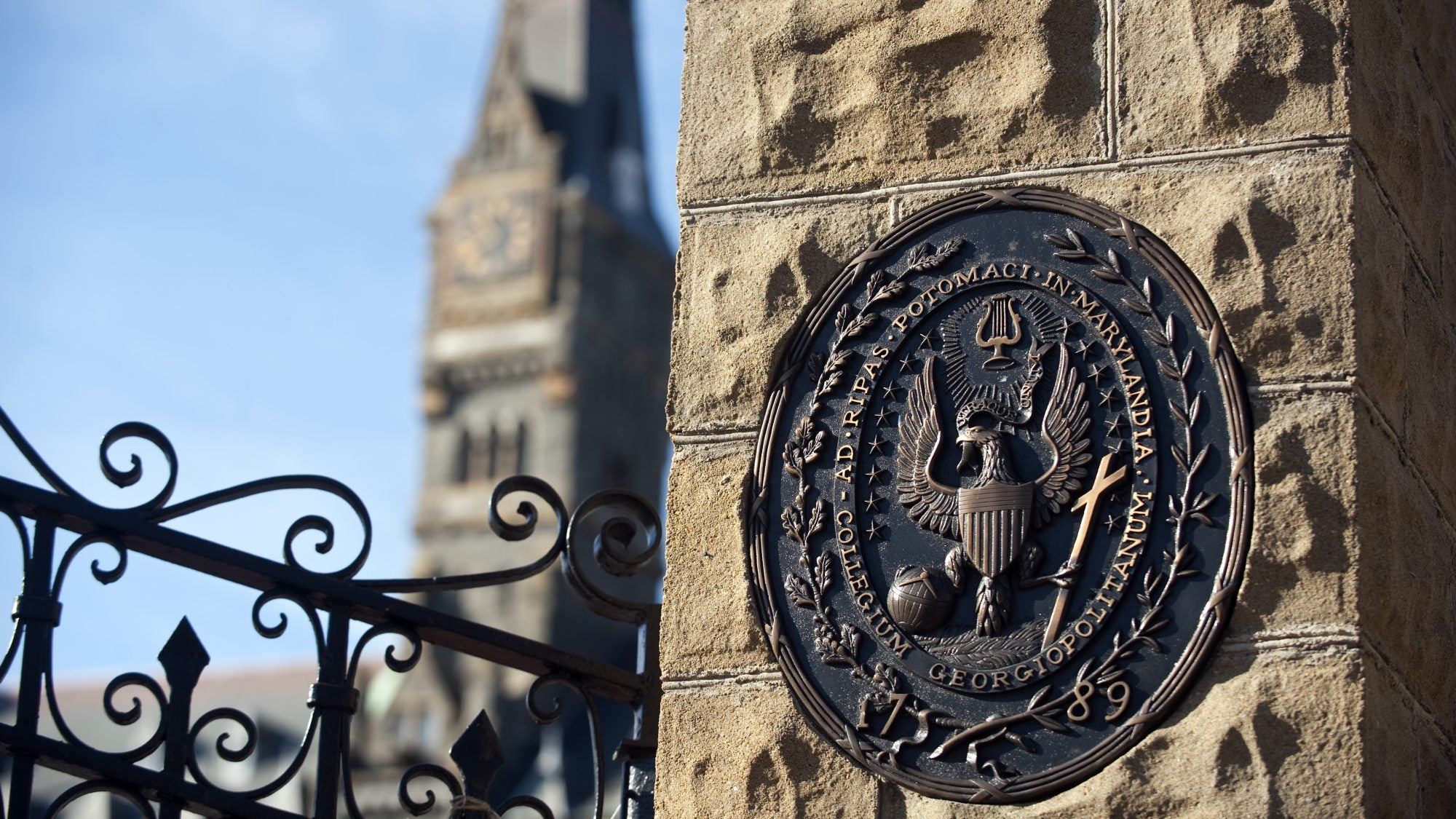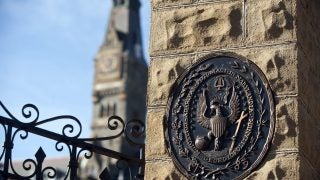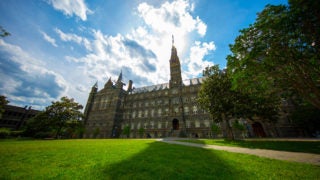The two cases, which the Supreme Court will hear this fall, challenge the admissions policies and procedures at Harvard University and the University of North Carolina and call for the court to overturn the right of higher education institutions to consider race as a factor in college admissions.
Georgetown’s joint effort with Catholic institutions, including the University of Notre Dame, the College of the Holy Cross, DePaul University and Villanova University, affirms that the right to consider racial diversity in a holistic admissions process to build a diverse student body and learning environment is essential to their academic and religious missions. Achieving racial diversity in admissions, the brief asserts, is “inextricably intertwined” with Catholic universities and colleges’ religious foundations.
The brief also argues that this right is rooted in the First Amendment’s Free Speech and Free Exercise Clause, particularly for Catholic higher education institutions, whose ability to have discretion in how they choose students is critical to their religious missions.
“Georgetown, the oldest Catholic and Jesuit university in the nation, was founded on the principle that engagement between people of different faiths, cultures and beliefs promotes intellectual development, an understanding of service and solidarity, and a commitment to the common good,” says Georgetown President John J. DeGioia. “Our Jesuit tradition of education recognizes the value of diversity as necessary to education and in our work to shape future leaders who will make invaluable contributions to our national and global communities.”
Georgetown has a long history of supporting affirmative action in university admissions dating back to 2003, when it submitted an amicus brief for Grutter v. Bollinger, the landmark ruling that upheld the race conscious admissions program at the University of Michigan Law School, and again for Fisher v. University of Texas at Austin, which affirmed the legality of the University of Texas admissions policies in 2016.
The Cases
For more than 40 years, the Supreme Court has upheld that race can be considered a factor in college admissions, most recently at the University of Texas at Austin in 2016.
In 2014, the Students for Fair Admissions (SFFA), a group begun by Edward Blum, a legal strategist who has challenged affirmative action policies over the years, sued Harvard University for discriminatory admissions policies. The District Court and U.S. Court of Appeals for the First Circuit have both upheld Harvard’s admissions policies.
SFFA sued the University of North Carolina at Chapel Hill (UNC) the same year. A District Court has since ruled in favor of UNC’s admissions policies in 2021.
Both cases will be heard separately this fall. The repercussions could ripple far beyond Harvard and UNC and impact affirmative action admissions policies nationwide.
Georgetown’s Amicus Brief
In the run-up to the two Supreme Court hearings, Georgetown partnered with a group of Catholic colleges and universities to reinforce their collective commitment to building diverse student communities and learning environments that advance their Catholic missions and values.
“We are proud to stand together with more than 50 colleges and universities for affirmative action and the sustained ability to create equitable, inclusive and diverse learning environments for our students,” said Bisi Okubadejo, associate vice president of Equal Opportunity, Affirmative Action, and Compliance. “It’s not just the right thing to do — it’s critical to our Catholic, Jesuit mission.”



